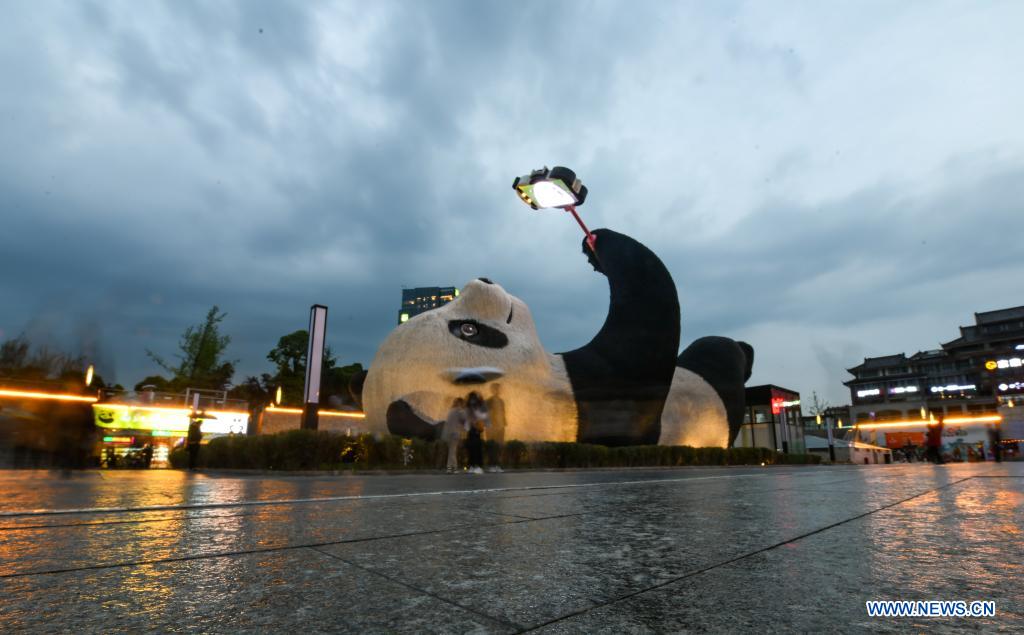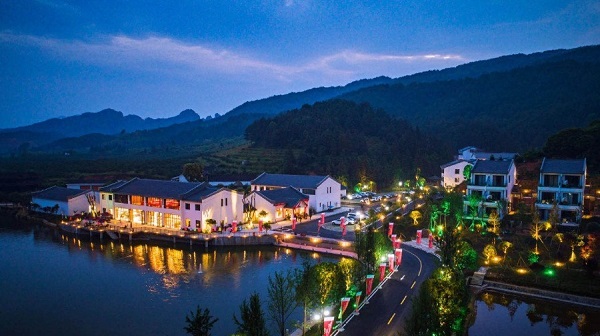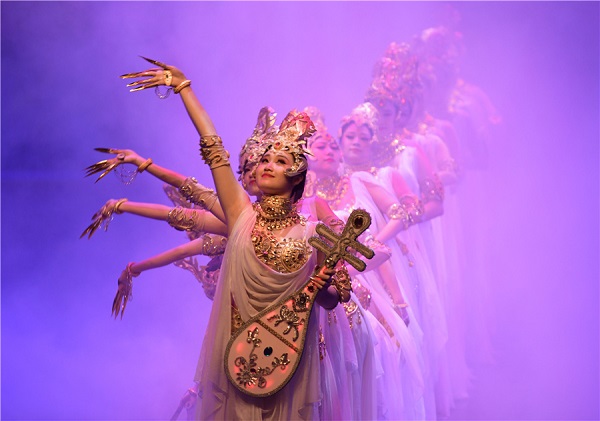Rampant racial discrimination on social media threatens Asian Americans since COVID-19
The StopAsianHate campaign triggered by the 2021 Atlanta Spa shooting finally drew public attention toward racial discrimination against Asian Americans, the so-called "silent group" always suffering from racism both in-person and online.
Social media has exposed long-standing antagonism amid a China-bashing campaign in the US which has constantly stoked xenophobia that risks the lives of millions of Asian Americans since the former US President Donald Trump's COVID-19 blame game started.
75 percent of Asian American adults are among 288 individuals who experienced online harassment themselves said it was due to their race and ethnicity, according to a Morning Consult poll conducted from March 24 to 30 toward 1,000 Asian adults living in the US, which was released on Thursday. Data shows a surge in online harassment and racist posts targeting Asians following a prevalence of racially insensitive hashtags on social media.
In an era of globalized information explosion, social networking platforms have become a tool for many opportunists, who in order to gain profit, publish sensationalist statements and disinformation that attract attention and influence public opinion to portray a negative image of particular groups of people, which ultimately has serious social consequences.
Benjamin H. Nam, a Korean American scholar in international and comparative education who also conducted research on racial trauma amid the COVID-19 pandemic, found that since the early days of the pandemic - between February and April 2020 - YouTube has "portrayed countless accounts of racial discrimination toward Asians, Asian Americans, and international Asian students," while discriminative contents surged "especially during the presidential election campaign period," Nam told the Global Times.
Some opinion leaders, especially the influential US politicians who constantly make racist remarks on their personal accounts with tens of thousands of followers, have largely fueled the spread of hate against Asians on social media, observers found.
"I clearly remember a white American man tweeted in February that he planned to shoot Chinese-Americans indiscriminately in Brooklyn's Chinatown because 'the Chinese had brought the virus to the US'," Tang Enyang, 46, who has been naturalized in the US for 20 years and a New York resident told the Global Times.
Tang also added that although this incident ended with the New York City Police Department deploying extra police patrols on local streets, in the comments section of the tweet, there was a 50-50 split between condemnation and fanaticism, with indifference seeming to slightly overwhelm concern.
In the wake of the COVID-19 outbreak, attacks against Asians, especially those of Chinese descent, on social networking platforms have made Asian Americans feel isolated and grossly misunderstood.
39-year-old Muong (pseudonym) from Vietnam, who has been living in the US since the age 13 and took on American citizenship at the age of 19, believes there was an obvious surge in discriminative posts on social media in the beginning when the former president Donald Trump dubbed COVID-19 as the "China virus."
She thinks Trump's comments and negative nomenclature affected people's projection of China and Asia. "That was very annoying and stupid," Muong told the Global Times on Tuesday.
Tang also noted that the growing discrimination against Asians in the US has been significantly linked to the fact that Trump and his subordinates have deliberately referred to the novel coronavirus as the "Chinese virus" in several important public appearances.
"Many white Americans seem to have found an outlet for their unbridled anger against Asians, and there are many extreme-minded opinion leaders who have gone to great lengths to reinforce this message, leading to countless people taking to Twitter to 'declare war' on the Asians," she said.
A report released by the Anti-Defamation League (ADL), a civil rights group, examined Twitter activity surrounding Trump's declaration on October 2, 2020. Researchers found an 85 percent increase in anti-Asian rhetoric and conspiracy theories on the platform in the 12 hours following the announcement, many blaming China, the US media NBC reported.
Tang noted that whether on Facebook or Twitter, the only things that inspire compassion for Asians from the majority of Americans are extremely violent incidents, such as attacks that result in bloodshed or the loss of life of people of Chinese descent, with hard evidence on video or audio, but otherwise, verbal attacks that make the said group of people feel uncomfortable were largely unnoticed.
"But there are so many voices conveying racist messages. Twitter and Facebook occasionally blocked or flagged these messages, but for the most part turned a blind eye, and as to whether or not to ban and punish these foul-mouthed people, no one but Asians are concerned," Tang said.
Social media's response to identify remarks within the racist category follows inconsistent and unclear matrices. Though almost all platforms have rules against racist posts or the use of sensitive terms, the line was still not clear, or they sometimes flip-flopped about the red lines. While TikTok has banned "Kung Flu" in their platforms, posts containing the word can still be found on Facebook and Youtube.
The platforms sometimes also found it difficult or hesitated in balancing controlling hate speech and protecting freedom of expression, especially when facing pressure from political figures accusing the platforms of censorship.
According to the Morning Consult poll, a 43 percent plurality say social media companies are doing a "poor" job of preventing the spread of hate speech and violent content targeting Asian people on their respective platforms
Muong agrees that social media platforms did do a poor job. She doesn't find social media platforms punish the accounts that spread hateful information against Asians.
"During the presidential election, they did close Trump's social media account. I am not aware if they closed any of the Asian haters' accounts," she said.
"Because it is very politically related and I don't think the profit-driven tech companies have the drive or motivation to close the accounts," she stressed.
Hatred never gone
More than a year after the novel coronavirus, Asian Americans still struggled with hatred flooding various social media platforms including Facebook and Twitter.
Nam pointed to some American politicians directly mentioning racial issues in public, and both traditional and social media consistently delivered their messages.
Former president Donald Trump used racist rhetoric, claiming [the] coronavirus is originated from Wuhan of China, and calling coronavirus [the] Wuhan or Chinese virus. Senator Blackburn of Tennessee State also tweeted [about] the Sinophobia issues by using some uncomfortable texts, Nam said.
In October 2020, a US marine, Jarrett Morford, used racial slurs against Chinese people and threatened to shoot them in a viral video tweet, and said "China is going to pay for what they have done to this country and the world." The video is still trackable on Twitter now.
In another video recorded in July 2020, a tech industry CEO was caught on camera yelling racist slurs against and taunting an Asian American family at a birthday celebration in a restaurant. After public anger surged after the video gained over 1 million views on Instagram, he was forced to apologize and resign from his post.
Spurred on by some US politicians, onslaught, hate crimes, and anti-Chinese discourse have become more common across social media.
The Global Times found some hateful remarks against Asians, or comments that contain undertones of prejudice or stereotypes on Twitter. They attack the Chinese government and people under the guise of "protecting the human rights" of other ethnicities.
The ADL released a survey last month that showed "severe" harassment such as "stalking, physical threats, swatting, doxing or sustained harassment" has been on the rise for Asian Americans. About 17 percent of Asian Americans said in January they experienced severe online harassment compared with 11 percent during the same period in 2020, the largest uptick compared with other groups. About half said they were harassed because of their race, US media CNET reported.
There have been ongoing debates regarding the idea that accounts spreading discrimination and hate against Asians should be banned on social media, Nam said. "I feel definitely uncomfortable with the discrimination toward Asian people, but I have no clue how the social media policy can be reformed."
Nam believes that the US and its people are also affected by the widespread of anti-Asian disinformation on social media, because the trend hurts the country's own image in the international community.
"When social media contributes to developing racial discrimination in this specific time of a global health crisis, a lot of individuals may have cultivated the sense of anti-American sentiments in the contemporary global society."
Photos
Related Stories
- Global health challenges require global responses, cooperation: The Lancet
- Los Angeles schools reopen for in-person classes with mandatory COVID-19 testing in place
- First group of COVID-19 patients cured in Chinese border city
- Hong Kong announces plans of easing social distancing measures, travel restrictions
- White House announces new actions to curb anti-Asian violence
Copyright © 2021 People's Daily Online. All Rights Reserved.










